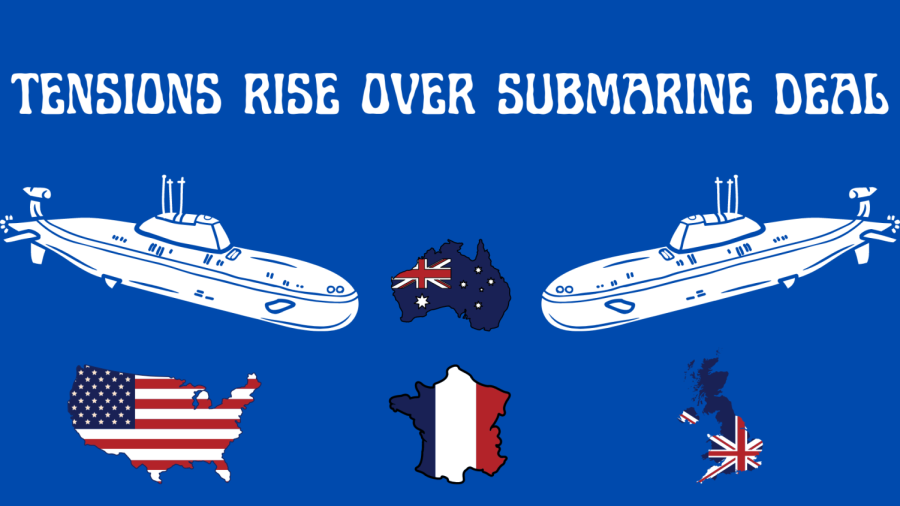Australia Breaks Submarine Deal Creating Tensions with France
Australia breaks a submarine deal with France after months of consideration in favor of making one with the U.S.
Sep 26, 2021
Australia has now backed out of a multi-billion dollar deal with France regarding new submarines.
Back in 2016, Australia signed the “Deal of the Century” with France regarding diesel-electric submarines to replace Australia’s aging ones, which would enable the country to investigate the growing tensions in the South China Sea without apprehension. The initial cost of the project was €31 billion, or $36 billion, and it has continued to rise since then.
However, in recent years Australia has been having issues with the contract despite France’s unsuccessful attempts to ease their partner’s doubts. After deliberating, Australia has decided to pull out of the deal, after five years of partnership, in favor of forming a new one with the United States and England. The French took it as a stab in the back and have since decided to pull their ambassadors out of both the U.S. and Australia.
This deal was essential to Australia due to its lack of new, working submarines. Australia’s submarines have become old and are planned for retirement in 2026. This deal with France was supposed to provide brand new submarines to replace the old ones, enabling Australia to face the potential threat posed by China with its rapidly growing economy in a time of political uncertainty. This makes China a world power ready to compete with others like the U.S. while being in a precarious political situation.
The Australian submarines would provide their country with additional protection. However, they could not be delivered until 2035 at the earliest, or until the 2050s at the latest. This would result in a serious defense and security setback for Australia. Furthermore, thousands of jobs working on submarine production, which was supposed to be located in Australia, were promised to the Australian population prior to the contract.
Because France could not fulfill their expectations, Australia looked to England, who contacted the White House. Through a few discussions, it was established that Australia would sign a deal with those two countries for nuclear submarines instead of the diesel-electric ones that France was offering.
This created several issues, starting with the fact that this new agreement would mean providing Australia with nuclear power they had not possessed until now. Such a thing could result in tensions between Australia and its neighboring countries, which would be powerless in the face of these new technologies. This could also offend or destabilize China, with which Australia has tense relations.
France did not take the ending of their contract with Australia well. This deal was supposed to end with a profit of billions of euros for France, a sum that would support their economy for many years. So far, the French government has called back its ambassadors in both Australia and the U.S.
France did eventually announced that this was not a definite breach between the three allies, just a temporary loss of trust. As of right now, the ambassadors have not returned and France has not discussed what it plans to do to conclude this issue. For the moment this is a source of heavy debate in the country, and President Emmanuel Macron’s decision could also impact his run for a second term in the coming election.
“I think this situation is very unfortunate because not only was a lot of money lost but the agreement had been negotiated since 2016. For it to end so brutally is very destabilizing and unfair for France,” sophomore Myrea Ghetti said.
Currently, the U.S., Australia and Britain have not published anything official to acknowledge the potential breach between them and one of their closest European allies. Biden announced that current relations are great between the U.S. and France.
“It would be best if the U.S. and Australia did not respond. France is already upset so any responses made now by the two countries would not be very useful,” sophomore Natalie Muňiz said.
The broken deal and its renewal elsewhere have caused a global impact as the four countries involved are some of the world’s most powerful countries. As of now, the situation is still unclear and France has not decided on a course of action to answer this setback to their plans for their economy’s future.
The U.S. and Britain seem neutral about the whole issue, not addressing it officially, unlike Australia which announced that they regretted creating such a rift between them and their European ally.












